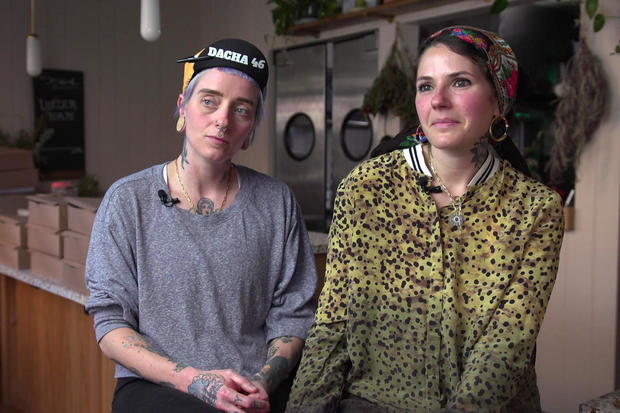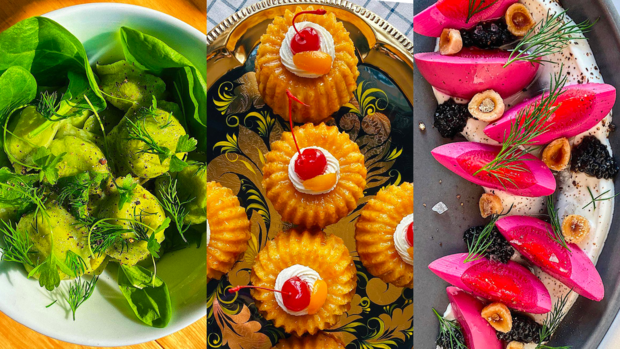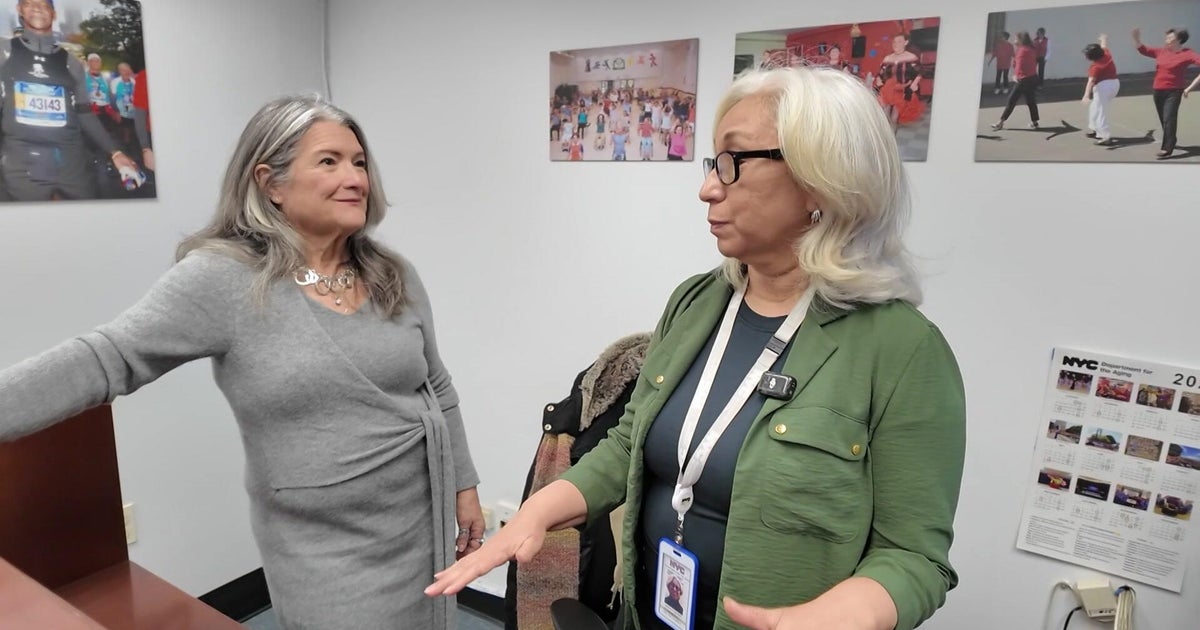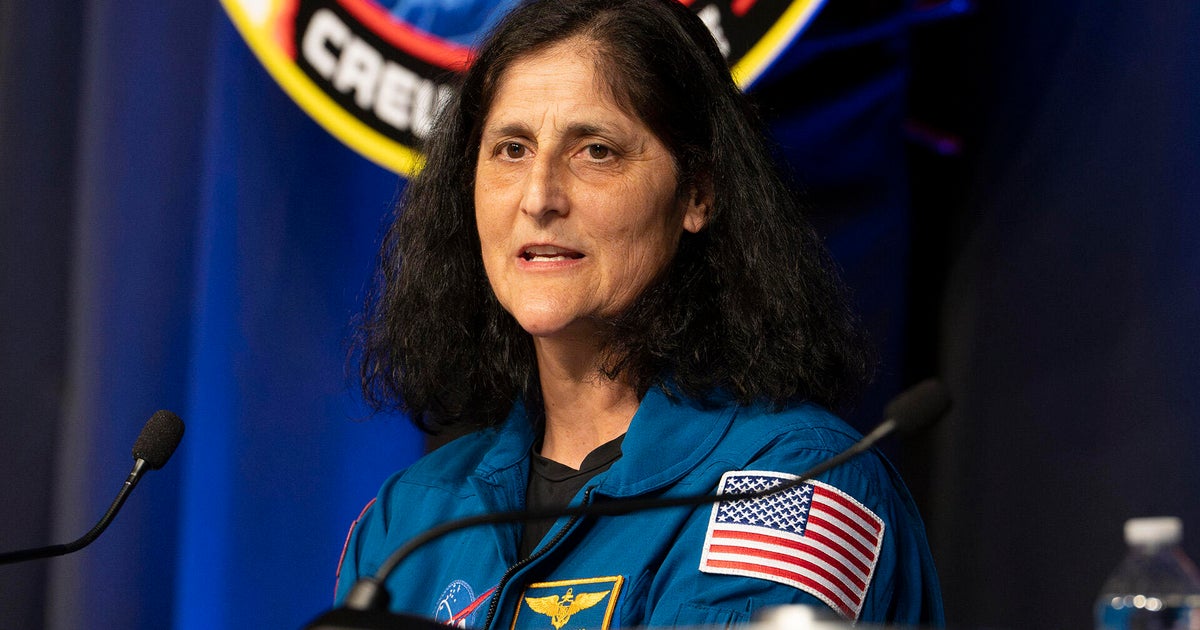Owners of Eastern European pop-up Dacha 46 launch initiative to help Ukraine
When Russia invaded Ukraine in February, it came as no surprise to New York pastry chef Jessica Quinn.
"I want to say that it was shock and horror, but it wasn't," she told CBS News. "Growing up with parents who grew up in the U.S.S.R., within Soviet Russia, it almost just felt like history repeating itself… It's obviously a horror to see Russia invading Ukraine, but it's almost like a re-lived horror. We've done this before. We've seen it before."
In a nod to her Jewish Latvian-Ukrainian lineage, Jessica and her wife, chef Trina Quinn, co-founded Dacha 46 during the COVID-19 pandemic. Their traveling pop-up is inspired by Eastern European cuisine and culture.
After Russia's assault on Ukraine began, the couple organized a "Cook for Ukraine" pastry box fundraiser, which was a spin-off of a London-based movement launched by chef Olia Hercules and Alissa Timoshkina. The fundraiser was a collaborative effort with 11 other chefs and bakers, including Natasha Pickowicz, Jeremy Salamon of Agi's Counter and Deb Perelman of Smitten Kitchen. It sold 100 boxes in less than seven hours, raising more than $10,000.
"Some people just donated, some people bought the box," Trina said. "It was a way for people to feel like they're helping. And it did, it made an immediate impact. Within 24 hours that money went on the ground to all these different organizations that needed it. And we made sure that the organizations we knew or had worked with and were actually doing on the ground work, or went to specific PayPals that were helping students leaving Ukraine."
The couple got the idea for their venture while Trina was furloughed from her restaurant during the pandemic and Jessica was on sabbatical.
"Trina really kind of was the drive behind it. I would come home and she would be hand making pelmeni, which are our dumplings that we're kind of known for," Jessica said. "She was like, 'We're eating this food and we're really satisfied by it, and I think a lot of people need something comforting right now.' And she was like, 'Maybe we should try selling them.'"
"It was definitely probably anxiety driven," Trina added, laughing. "It's like you go from working 14-hour days to zero-hour days, and it's like a culture shock as far as mentally. So I feel like it was really, making pasta and dumplings is just very therapeutic."
Concocting Dacha 46 with Trina also turned out to be a way for Jessica to reclaim her heritage.
"Growing up with it in the Eastern European culture, my identity as being a gay woman was complicated and took a long time for me to come to terms with," Jessica said. "Trying to personalize our story while also showing that other queer Eastern Europeans have a place within the culture, and as we like to say, have a seat at our table — I know what it feels like to feel like your culture doesn't want you. So you almost retreat from it and you turn your back on it. This has been this embracing of it instead of turning away from it. And really, that perspective and lens has shifted for me incredibly, because I've never felt prouder of who I am and I've never been prouder to be Latvian-Ukrainian."
The pair said Eastern European fare can be at times "disregarded," but with a fresh take, Jessica and Trina hope to educate and break down misconceptions about the cuisine.
"I feel like it's really been sort of this coming home moment for me," Jessica said. "And it's nice because now it's under our turf, it's our rules and it's just more, I'd say, inclusive and inviting and that's what we always pictured what we created together would look like."





